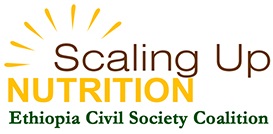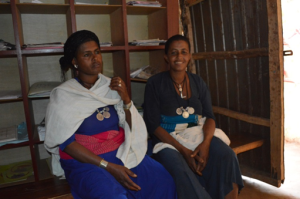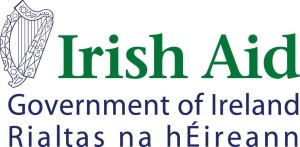Women Development Army – Arms for Change on Nutrition, West Gojam Experience, Ethiopia
Ethiopia Civil Society Coalition for Scaling up Nutrition (ECSC-SUN)
Tsehaynesh Semu, (a mother of 5 children) and Adame Zerihun (a mother of 2) are community-level volunteers, who lead networks of the government-named “Women’s Development Army” at Fezel kebele, Bure woreda of West Gojam zone.

About the authors: This article was documented and shared by Kenaw Gebreselassie and Sosina Melese- Ethiopia Civil Society Coalition for Scaling up Nutrition (ECSC-SUN)].
Tsehaynesh Semu, (a mother of 5 children) and Adame Zerihun (a mother of 2) are community-level volunteers, who lead networks of the government-named “Women’s Development Army” at Fezel kebele, Bure woreda of West Gojam zone. Assigned to support and lead 30 families each as per the 1 to 5 government structured development network, they work so closely with health extension workers and agriculture development agents, and provide grass-roots support.
On the nutrition front, they support ongoing efforts to end malnutrition at community and household level mainly through providing appropriate infant care and feeding instruction, and boosting the community’s knowledge and understanding on breastfeeding, cooking nutritious diet and backyard gardening. More importantly, they strive to create demand for the health and nutrition services that Fezel kebele Health Post provides.
Tsehaynesh and Adame are well aware of the grass-root health and nutrition services they can support at their level. They know well all the villagers whom they keep an eye on. In consultation with, Muluken Kassa, the health extension worker at Fezele, they make regular rounds to check on mothers and encourage good health and nutrition practices. They check on practices such as cooking preparation, caring for new-born babies and children under five, latrine building and setting-up separate kitchen.
I have my own visit schedule and I know well the right health and nutrition messages I should deliver to the women I support day in and day out. I educate pregnant and lactating mothers to eat more and diversified food, and ensure that every newly born child is exclusively breastfed for six months. I show them how to cook well for their children after six months as well. The change we are witnessing now is very inspiring, thanks to Muluken, who is coaching us and providing all what we need to help our fellow mothers.’’ Adame explained.
Teshaynesh and Adame have the requisite knowledge and understanding of good nutrition and what it means to their community. And they are very expressive as they explain what they do in the course of their house-to-house visit. As they themselves are model mothers, they serve as living examples who become change agents regarding the change in behaviour and practice expected to happen in the community, mainly changes around child caring and feeding practices. The sense of ownership they have is very inspirational.
Tsehainesh spoke of her roles as a lead of Women Development Army:
Educating the community about health and nutrition is my everyday task. I identify pregnant mothers within a 1 to 5 networks and refer them to the health post for pregnancy check-up, nutrition counselling, and other health and nutrition related services. I myself go house-to-house and tell them about what they should do for their babies in the first 1000 days, the period covering from pregnancy to the child’s 2 years birthday. For children above six months, I with Muluken and other team leads of women networks prepare local complementary food, mainly flour composed of cereals and legumes. The mothers of these children take the prepared food in exchange with raw cereals and legumes, they can provide. We also educate them about the benefits of homestead gardening by using the garden patch we have set up around our health post.
Fezel Kebele demonstrates such an inspirational community involvement and sense of ownership that need to be replicated in other areas of the country. It is imperative to capitalize on the experience and excitements that is created within this community and follow up on the progress to ensure malnutrition is stamped out in other areas of the country as well. The contribution of this local development team illustrates the community’s participation in the health and nutrition services become crucial to the changes needed at grassroots.
Muluken Kassa (Health Extension Worker at Fezel) acknowledges that this promising participation of women in nutrition activities has brought about several changes in Fezel and other localities of West Gojam. Birilew Mintesinot, who leads Bure Woreda nutrition office, echoes similar enthusiasm about the effectiveness of Women Development Army’s involvement in nutrition awareness and action.
The ECSC-SUN team witnessed the local development teams and leaders of these teams are doing crucially important jobs that can affirmatively contribute to the nutritional status of children and mothers, and to the big changes the country wishes to see through the scaling up nutrition efforts.
The Ethiopian Civil Society Coalition (ECSC) was established in 2013 in order to galvanise efforts to alleviate the burden of malnutrition. The ECSC-SUN is chaired by Save the Children and funded by IrishAid.



